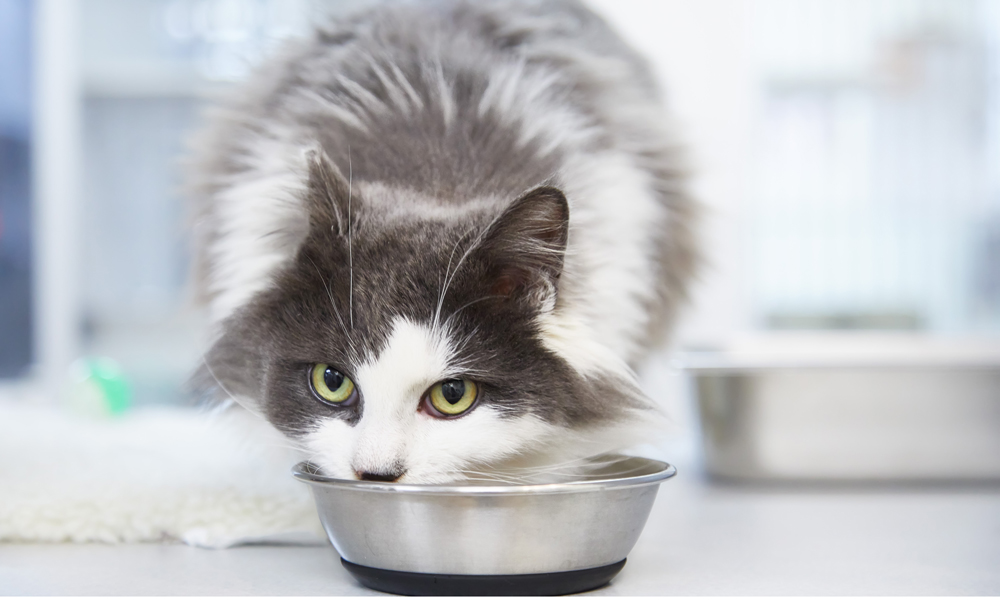Pet parents may log fewer complaints about cat odors than they do those from dogs. But when kitty makes a stink, whether from gassiness or a messy litter box, nothing clears the room more quickly. Even so, like they say in “Smelly Cat” (which you may recall from a certain little sitcom from the ’90s): It’s not kitty’s fault!
With a few simple changes to your cat’s diet along with other smart tactics, you and your visitors will soon smell the difference. Odors from cats themselves are rare, but when they happen, you’ll want to know if the issue will clear up on its own, or if the cat needs to be seen by their vet. Read on for your complete guide on managing kitty odors.
How can I make my house not smell like cat?
When it comes to cat odor complaints, chances are, the litter box is the source. Scooping daily, changing the litter and scrubbing the boxes with cleaning agents to neutralize odors are always key. (While you’re at it, you can try purchasing one of the newer, higher quality litter brands, which eliminate ammonia and fecal matter odors.)
But if you truly want to deodorize that lingering cat box aroma, here’s how.
Keep enough litter boxes
As a rule, keep one box per cat, plus an extra, with at least one box at every level of the home. Cats can be competitive and territorial when it comes to going to the bathroom, so having enough boxes for everyone will help eliminate the accidents.
Clear the air
Some pet parents swear by their electronic air purifiers, while others have found success with orange glowing Himalayan salt lamps or burning scented oils (as long as kitty won’t mess with these devices). One product that’s been getting rave reviews is a simple charcoal filter installed near the cat box. Activated charcoal quietly absorbs nearby odors, making it easier to maintain a pleasant atmosphere.
Spay and neuter
Cats may spray urine to mark their territory, and even if you have an indoor cat, the sight of an invader crossing the back yard may be enough to set them off. If your pets are still intact, spaying and neutering can go a long way in calming the aggression.
Clean up messes with enzyme cleaners
As much as we try to prevent them, cats have accidents. When urine gets into carpeting and upholstery, it leaves behind powerfully strong odors. The good news is there are lots of great products with enzyme cleaners that can make things just like new. Talk to your local, independent pet retailer, who can recommend great products that work. Lay plastic sheeting on top of the treated area, and allow to rest overnight, so the enzymes can work their odor-slaying magic without the solution drying out.
The best cat food for odor control
An inferior bargain diet is a common culprit behind intense cat box odors. Grocery store brands use corn, soy and other fillers, causing stomach upset and bigger messes in the litter box. That’s especially so if kitty is sensitive to these filler ingredients. Switch to a high-quality brand found at your independent pet supply shop, and you’ll quickly see a difference. Here are three things you’ll want to see on the label to make a true difference in cat odors.
- Look for meat or meat meal listed first in the ingredients. When paired with ingredients like chickpeas, lentils and brown rice, the food will be more nutritious and gentler on your cat’s system. In addition to your cat smelling better, they’ll feel better!
- What makes feces so stinky is undigested proteins working their way through the system. However, diets with a dose of probiotics (such as Saccharomyces cerevisiae) balance the gut microbiome, making the digestive system better equipped to digest food, absorb more nutrients and leave fewer litter box messes. For best results, look for diets containing at least 80 million colony-forming units of probiotics, which is also known as “good gut bacteria.” Check the ingredients panel on dry food bags, and you’ll see this listed as “microorganisms” on the guaranteed analysis.
- Finally, a supplement called yucca extract reduces bad smells by breaking down the odor-causing proteins found in urine and feces. According to research, yucca schidigera results in a marked decrease in “fecal offensiveness” in cats by 26%!
You’ll want to follow kitty’s lead when switching. But the good news is a high-quality diet should be pretty gentle on their system. Here’s how to switch your cat to a new brand of cat food.
What is that smell?
Cats are conscientious groomers, devoting, on average, an hour a day to the task. Because of that, we seldom think of cats as being smelly. But it happens, and below we uncover some of the common causes.
Why does my cat have bad breath?
Yes, a cat’s breath can smell funky after chowing down their favorite canned entree, especially if it has fish. But if the bad breath is sticking around for several days, it’s time to act.
Most often, halitosis points to dental issues, especially gum disease or tooth decay, which are pretty common in cats. Various studies have found that anywhere between 50% and 90% of cats end up with some form of dental disease by the time they reach 4 years of age. So if the odor is accompanied by signs of mouth pain, see a vet.
Less frequently, foul breath can signal a serious illness, such as kidney failure or liver disease. If this accompanies other symptoms, like vomiting and lethargy, have your cat evaluated as soon as possible.
Otherwise, keep your cat’s gums and teeth clean and healthy with daily toothbrushing. If toothbrushing isn’t realistic, your vet or your independent pet supplier may have some recommendations. Dental toys and treats containing special enzymes can help remove excess plaque that leads to decay and disease.
Why does my cat smell like fish?
Even if your cat chows on his favorite fish entree every day, it shouldn’t be their signature scent. Ongoing odor can point to problems with the sac glands. How? When your cat defecates, these sacs, located near the anus, release a small amount of pungent fluid. This helps the cat mark his territory against other cats, but he’ll also release it when he’s frightened.
While gland problems are more common in dogs, cats have them, too. Glands get clogged, infected or abscessed. So if the fish odor is constant, and accompanied by excess cleaning and scooting on the floor, have your cat examined by a vet.
Why does my cat smell like urine?
A common cause behind urine odor is a urinary tract infection. If it’s accompanied by the following symptoms, have your cat seen by a vet:
- More frequent trips to the litter box than usual
- Crying out while “going”
- Cat cleans its bottom area more frequently than usual
One thing to keep in mind is that UTIs are most common in cats that are overweight and get little exercise. At the same time, when cats carry extra bulk, it’s more difficult to reach everything during grooming, leading to unpleasant “litter box” scents lingering on your cat’s fur. If your cat needs help, read our tips to help your cat lose weight the healthy way.
Does my cat have an infection?
While ear and skin problems are more common in dogs, the unpleasant scents sometimes do arise in cats.
Musty odors wafting from the ear area are a sure sign of an ear infection.
Another cause is skin infections. If your cat was in a recent fight with another cat, keep an eye out for an abscess. These infections are caused when bacteria found in cat saliva enters the bitten cat’s body, and develop into infections within 24 hours. If your cat flinches or cries out in pain when touched in specific areas, have your cat treated by a vet before the abscess ruptures. The best treatment for an abscess is a course of antibiotics, but in more serious cases, surgery may be needed.
Try NutriSource and enjoy life with kitty
NutriSource cat diets are the purr-fect choice for any pet parent who wants to reduce litter box odors. Every bag and can is packed with Good 4 Life, a unique blend of supplements that offers your cat all the minerals and nutrients they need to build a healthy body from the inside out. Good 4 Life for cats has probiotics along with powerful prebiotics to balance their gut biome, and yucca extract to reduce the cause of litter box odors. Discover more benefits Good 4 Life offers your pet, and look for NutriSource at your local, independent pet supply retailer.


